This article was co-authored by Saul Jaeger, MS. Saul Jaeger is a Police Officer and Captain of the Mountain View, California Police Department (MVPD). Saul has over 17 years of experience as a patrol officer, field training officer, traffic officer, detective, hostage negotiator, and as the traffic unit’s sergeant and Public Information Officer for the MVPD. At the MVPD, in addition to commanding the Field Operations Division, Saul has also led the Communications Center (dispatch) and the Crisis Negotiation Team. He earned an MS in Emergency Services Management from the California State University, Long Beach in 2008 and a BS in Administration of Justice from the University of Phoenix in 2006. He also earned a Corporate Innovation LEAD Certificate from the Stanford University Graduate School of Business in 2018.
This article has been viewed 177,100 times.
Staying home alone, especially if it's a new experience, can be scary. Maybe your parents work late a lot, or maybe you get a call from your mom on the bus ride home saying that she's going to be late back home. Whatever the reason, you'll be alone at home for a while. Don't worry; with a few steps, you'll be prepared to handle the situation by yourself.
Steps
Being Prepared
-
1Keep a key on you at all times. Whether you're home alone frequently or rarely, make sure you have a house key on you at all times. Keep it in a safe place, such as your wallet or an inner pocket in your backpack, and make sure you don't lose it. You don't want to get locked out of the house on a day when your parents won't be back until late.
- Keep the key with you. Don't leave it outside your house (e.g. under the doormat) - someone could find it and break into the house.
- Avoid clipping the key to a keychain outside your backpack or on a piece of jewelry - this makes it easy for someone to grab it, or for you to lose it.
- Some houses have a security system built in, in addition to your key. Typically, these go off whenever a window or door is opened. If your house has one of these systems, make sure you know the code to disarm it.[1]
-
2Have a list of trusted phone numbers. If you lose your cell phone or the battery dies, you don't want to realize you can't remember the number to call your dad at work. Put the list somewhere important, preferably where you keep your key.
- As a general rule, you'll want to have the phone number of your parents (both cell and work numbers), trusted neighbors, and outside family in the area (e.g. grandparents, aunts and uncles). For the number of parents you have, you should have an extra contact - for example, if you have your mom, your dad, and your stepmom, you should have at least three other contacts that aren't those parents.
Advertisement -
3Keep emergency money with you. Maybe you need to take public transport to get home, and you need bus funds; or maybe you took the wrong bus by accident and need a taxi to get home. Sometimes, you may even need to use a payphone. Make sure to have a good amount of money on you - the amount will probably be dependent on where you live - and make sure that if you ever use the money, you replace the amount that you used.
- Keep your money in quarters. Bills may seem more convenient, but you often can't use bills for things like a payphone, and you don't want to overpay a bus fare.
- Don't keep too much money on you. Twenty dollars should be fine at home, but outside of the home, you may not want to carry more than five. Ask your parents how much money you should have with you.
-
4Make plans for meeting siblings. If you have siblings who get out of school at the same time that you do, you'll want to establish a meeting time and place with them so that you can get together as quickly as possible and then go home. Do the same thing for any activities they participate in. Make sure your parents are aware of the meeting space, so that your siblings know they can't just run off anywhere and then say that they didn't know where they were supposed to meet you!
- If a younger sibling gets out of school or an activity earlier than you do, and there isn't somewhere they can wait for you, see if you can arrange for a trusted adult to pick them up.
- Sometimes, siblings may want to spend time with friends after school. Work with your siblings and parents to establish a list of friends that you and your siblings can visit, and who you can't.
-
5Set a schedule. A schedule can make things much easier on you and your parents - if you have everything for a typical day planned out in advance, it will make transitions from one thing to another go much more smoothly. Take into consideration any extracurriculars or outside activities you have, how much homework you get, and if you have any siblings, their activities as well. Then, create a basic schedule around these.[2]
- Set up a backup schedule if you don't feel comfortable with leaving the home. If you have any activities on your schedule that involve leaving the house, but you don't feel safe to leave for whatever reason, use the backup schedule and let a parent know. Be sure to also notify anyone else that may be involved (e.g. teachers, coaches, neighbors) so that they don't wonder where you are.
Sample Schedule:
3:00 PM: Return home from school; let parent know
3:30 PM: Soccer practice at the field
4:30 PM: Return home from soccer; let parent know; begin homework
5:30 PM: Parent(s) are home -
6Agree on basic house rules. Every family is different and has different priorities. When it comes to your family, you'll need to discuss this with them. What do your parents say needs to happen after you get home from school? Make sure that all basic house rules are discussed and agreed on beforehand. Here are some examples of questions to go over with your parents.[3]
- What needs to be done immediately after getting home and locking the door? For example, do you need to do certain chores?
- Are you allowed to make phone calls on the landline or your cell phone? If either phone rings and you don't know the number, do you pick up?
- If the doorbell rings, do you answer it to everyone, or only if it's certain people? Alternatively, do you just not answer the door at all?[4]
- Are you allowed to leave the house after arriving home? If so, what's the furthest place you're allowed to go?
- What websites are you allowed to use while your parents aren't home? What websites can younger siblings use?
- How much time on electronics (TV, computer, cell phone, etc.) are you and your siblings allowed to have? If you have to share electronics, what's the time limit for using it before the other sibling gets to use it?
- What things in the house are off-limits? For example, your parents might be okay with you using the microwave, but not the stove.
- What's the latest you should start your homework?
-
7Map out your home. You probably know your home very well, but it's still important to map out areas that have things you might need. Create a map of your house, place anything you may need in an agreed-upon spot that you or a sibling can reach, and keep the list pinned somewhere in case of emergencies. Make sure you know where the following things are in the house, and that they're marked on the map.
- First-aid supplies
- Emergency supplies - flashlight, battery-powered radio, batteries, money, and so forth
- Places or things that are off-limits (e.g. garage, electrical appliances)
- A route to escape the house in case of danger
- Where to go in case of a natural disaster
-
8Map out your neighborhood. Similar to your home, it's important to map out your neighborhood, too. (If you walk home, you may want to even map out the whole route you take!) It's important to know what's a "safe zone" and what's not, especially if you're allowed to leave your house after your home, or if you have to in order to get to an activity.[5] Make sure to map out the following places when mapping out your neighborhood:
- Your home
- Homes of trusted neighbors
- Locations of places you may need to access (e.g. a field or park)
- Safe roads (roads you can use to walk somewhere)
- Unsafe roads (roads that you should never use)
- Public places that are safe for you to go to
- Routes taken if you need to walk a significant distance to your house
-
9Always have a backup plan. Unfortunately, things do go wrong sometimes, and being caught unprepared can be scary, or even dangerous. Discuss with your parents and neighbors about what you should do in emergency situations that may arise.[6] Here are some questions that may serve as inspiration for you to go over with your parents.
- Where do you go if the house is unsafe when you arrive? (For example, the house smells of gas, or the window is shattered.)
- Who is the "emergency contact" for school? If there's an emergency evacuation at school, and your parents can't get off work to pick you up, make sure that there's a designated adult you know who can pick you up.
- What are the procedures in case of natural disasters, such as earthquakes, tornadoes, or severe storms?
- What do you do in case of minor situations that don't require leaving the home, such as a power outage?
- What do you do if you or a sibling gets lost, or a sibling doesn't come home at an agreed time? (Be sure to allow time for slack - a sibling coming home five minutes late isn't a big deal unless it's dark.)
- If your mom or dad is late getting home, what's the maximum longest time that can be waited before contacting you? (For example, if your dad is fifteen minutes late, does he contact you and let you know?) If you aren't contacted, who do you call?
- Is there an "emergency signal" that should mean "pick up the phone"? For example, calling a parent only one time would signify that it's not an emergency, but calling twice in a row means that there's an emergency.
Safety Tips
-
1Keep your cell phone on and with you at all times. No matter where you are, you'll want to have your phone with you. (If you don't have a cell phone, ask for one - you stay home on your own, after all.) Make sure it's on - if school policy says you can't have it on during school hours, turn it on after school - and not silenced, so that you can hear calls or texts coming through. You'll want to make sure that you can reach your parents, and that they can reach you.[7]
- Keep your phone charged - if something comes up and your phone is dead, you may not be able to contact your parents or emergency services if you're alone. Consider bringing a spare phone charger to school with you, just in case.
- Avoid playing with your phone or listening to music out in public. Playing on your phone or listening to music distracts you from what's going on, meaning you could step into the street by mistake or become a target for bad people who want to hurt you. And even in the best case scenario, you may just end up missing the bus because you didn't notice it was there!
-
2Meet up with any siblings, if necessary. If you have any siblings, meet up at an established meeting place before going home. Don't leave without younger siblings, and check with siblings that are of the same age or older before you leave without them. A sibling of a similar age to you may want to (or need to) stay at school or their activity longer. Take this into account and plan around it.
- If your sibling is disabled, whether physically or developmentally, don't leave them behind, regardless of their age. Wait for them, or go home and then pick them up when they're done with their activity. Someone in a wheelchair or crutches may have trouble defending themselves or taking certain routes home, and an autistic sibling or a sibling with Down Syndrome might not understand that strangers may want to hurt them.
- If you have to stay late at school - for example, you participate in a club or you have detention - make other arrangements for younger siblings, so that they're not waiting alone or going home by themselves.
-
3Notify your parents when you arrive home. Once you've gotten home, send your parents a text message saying that you've arrived home. Don't call them unless they've told you to call them when you arrive home; calling can be disruptive, especially if they work an extremely demanding job or are in a meeting.
- Immediately after you get home, lock the door you came in through. You don't want to get so caught up in getting home that you leave the door unlocked.[8]
-
4Keep yourself safe once you arrive home. Your safety is not something you want to leave to chance. Stick to the previously-discussed house rules, and if anything new comes up, ask your parents about it for the future when they get home. Taking a chance with safety by ignoring previous rules is not a good idea.[9]
- Keep all doors and windows that lead outside locked. If you want to open a window, stay in the same room as the open window, and close the window when you leave the room.
- Don't leave young siblings alone in the home. If your parents said it's okay to hang out in the neighborhood with a friend, but your little sibling won't go with you, stay with your sibling. Younger children may get hurt or cause a problem out of curiosity when they don't mean to (e.g. turning on the stove, and then leaving it on).
Never tell anyone you are home alone! Even if you're on the phone with your best friend, never say to anyone that your parents aren't there. If somebody asks for your parents over the phone, say that they're busy and can't come to the phone, not that they're at work.[10]
-
5Be responsible. Your parents felt that you're responsible enough to stay home without an adult watching you; prove that to them, even though they're not with you! Take care of basic responsibilities at home when your parents aren't there. Going above and beyond could make your parents proud of you! Consider the following when it comes to responsibility:
- Do your homework. You don't have to finish it or not need any help at all, but do what you can. Consider helping any younger siblings you may have out with their homework once you've finished, too.
- Clean up after yourself. If you're playing a game, clean up the game pieces and put them back where you found them. If you eat a snack, clean up any spills you might have made, throw any garbage in the trash, and put dishes in the sink or the dishwasher. Don't leave a mess for your parents to clean up.
- Do your best to keep young siblings out of trouble. While you can't (and shouldn't) helicopter over your little sibling's every move, do your best to know where they are in the house. Keep them away from household hazards, too; you don't want a younger sibling to turn the stove on, or knock down something dangerous.
-
6Stay alert. It's important to be able to notice if something seems wrong, especially when you're home alone. Don't be so alert that you freak out when you hear the cat jump to the floor, but don't put on your headphones and drown out the world, either. Be awake and alert enough so that you can notice anything that just doesn't seem right.[11]
- If you can't focus without music or ambient noise, play your music quietly on a speaker, rather than headphones. Make sure you can still hear easily over it, and close your door if it irritates any siblings.
-
7Know what to do in case of injury or illness. Accidents happen - maybe you scraped your arm when climbing a tree or accidentally cut yourself when working on your science project. Additionally, sometimes you or a sibling might get sick; fevers, colds, vomiting, the flu, and other illnesses or ailments are quite common. Be sure to know what to do in case of any of these situations, and where medical supplies are kept if you need them.
- You may want to take a first-aid class or babysitting course, especially if you have younger siblings. These classes teach how to treat injuries, and sometimes CPR (for kids and babies) and the Heimlich maneuver - which can also be done on yourself in an emergency. Ask your parents if they can find one of these classes for you.
- If you (or any siblings you may have) are very badly injured - for example, you have a fever higher than 104 °F (40 °C), or your sibling hit their head and can't walk - call emergency services, and then call your parents to let them know what happened. Don't text them - your parents may not notice a text, and they'll want to make sure you're okay!
-
8Have a plan for if someone tries to hurt you. Sadly, there are some bad people in the world who want to hurt kids, especially girls. If you should ever find yourself in a bad situation, you'll want to know what to do and how to keep yourself safe.[12] The biggest thing to remember is that nobody has the right to touch you somewhere you don't want to be touched or take you somewhere you don't want to go, and anyone who tells you otherwise is trying to hurt you. Keep your wits about you at all times.
- Make sure you know basic skills for bad situations: know how to call emergency services,[13] how to text 911 if it's unsafe to call, how to find and use a payphone in case you can't use a cell phone, how to place a collect call if you're out of money, and how to get away from strangers.
- Know what to do if someone breaks into your home, how to stop someone from taking you to somewhere you don't know, and what to do if someone you don't know follows you home. And remember: if somebody ever touches you in a way that makes you uncomfortable, it's okay to yell at them to get off of you![14]
- You may want to learn self-defense techniques in case you need to fight back (but never attack someone unless they try and touch you). Consider a self-defense class such as karate or taekwondo.
- If you have any siblings, make sure they know these skills, too. While they can't learn self-defense overnight, make sure to go over emergency procedures with them and that they understand to avoid strangers they don't know. If you're ever with siblings and a bad stranger tries to approach you, steer them away - you don't want your siblings ending up getting hurt, either.
Expert Q&A
-
QuestionHow can I keep someone from breaking in if I'm sleeping alone at night?
 Saul Jaeger, MSSaul Jaeger is a Police Officer and Captain of the Mountain View, California Police Department (MVPD). Saul has over 17 years of experience as a patrol officer, field training officer, traffic officer, detective, hostage negotiator, and as the traffic unit’s sergeant and Public Information Officer for the MVPD. At the MVPD, in addition to commanding the Field Operations Division, Saul has also led the Communications Center (dispatch) and the Crisis Negotiation Team. He earned an MS in Emergency Services Management from the California State University, Long Beach in 2008 and a BS in Administration of Justice from the University of Phoenix in 2006. He also earned a Corporate Innovation LEAD Certificate from the Stanford University Graduate School of Business in 2018.
Saul Jaeger, MSSaul Jaeger is a Police Officer and Captain of the Mountain View, California Police Department (MVPD). Saul has over 17 years of experience as a patrol officer, field training officer, traffic officer, detective, hostage negotiator, and as the traffic unit’s sergeant and Public Information Officer for the MVPD. At the MVPD, in addition to commanding the Field Operations Division, Saul has also led the Communications Center (dispatch) and the Crisis Negotiation Team. He earned an MS in Emergency Services Management from the California State University, Long Beach in 2008 and a BS in Administration of Justice from the University of Phoenix in 2006. He also earned a Corporate Innovation LEAD Certificate from the Stanford University Graduate School of Business in 2018.
Police Captain, Mountain View Police Department Turn on every exterior light you have access to and lock your doors. If you have a storm door, lock that, too. Criminals want things to be easy, so if you make things even slightly more difficult than they normally would be, they may move on to another house.
Turn on every exterior light you have access to and lock your doors. If you have a storm door, lock that, too. Criminals want things to be easy, so if you make things even slightly more difficult than they normally would be, they may move on to another house. -
QuestionShould I answer the door if I don't know who it is?
 Saul Jaeger, MSSaul Jaeger is a Police Officer and Captain of the Mountain View, California Police Department (MVPD). Saul has over 17 years of experience as a patrol officer, field training officer, traffic officer, detective, hostage negotiator, and as the traffic unit’s sergeant and Public Information Officer for the MVPD. At the MVPD, in addition to commanding the Field Operations Division, Saul has also led the Communications Center (dispatch) and the Crisis Negotiation Team. He earned an MS in Emergency Services Management from the California State University, Long Beach in 2008 and a BS in Administration of Justice from the University of Phoenix in 2006. He also earned a Corporate Innovation LEAD Certificate from the Stanford University Graduate School of Business in 2018.
Saul Jaeger, MSSaul Jaeger is a Police Officer and Captain of the Mountain View, California Police Department (MVPD). Saul has over 17 years of experience as a patrol officer, field training officer, traffic officer, detective, hostage negotiator, and as the traffic unit’s sergeant and Public Information Officer for the MVPD. At the MVPD, in addition to commanding the Field Operations Division, Saul has also led the Communications Center (dispatch) and the Crisis Negotiation Team. He earned an MS in Emergency Services Management from the California State University, Long Beach in 2008 and a BS in Administration of Justice from the University of Phoenix in 2006. He also earned a Corporate Innovation LEAD Certificate from the Stanford University Graduate School of Business in 2018.
Police Captain, Mountain View Police Department Generally speaking, it's always going to be safer to not answer if you aren't sure who it is. When in doubt, just play it safe.
Generally speaking, it's always going to be safer to not answer if you aren't sure who it is. When in doubt, just play it safe. -
QuestionIs it dangerous to be home alone?
 Saul Jaeger, MSSaul Jaeger is a Police Officer and Captain of the Mountain View, California Police Department (MVPD). Saul has over 17 years of experience as a patrol officer, field training officer, traffic officer, detective, hostage negotiator, and as the traffic unit’s sergeant and Public Information Officer for the MVPD. At the MVPD, in addition to commanding the Field Operations Division, Saul has also led the Communications Center (dispatch) and the Crisis Negotiation Team. He earned an MS in Emergency Services Management from the California State University, Long Beach in 2008 and a BS in Administration of Justice from the University of Phoenix in 2006. He also earned a Corporate Innovation LEAD Certificate from the Stanford University Graduate School of Business in 2018.
Saul Jaeger, MSSaul Jaeger is a Police Officer and Captain of the Mountain View, California Police Department (MVPD). Saul has over 17 years of experience as a patrol officer, field training officer, traffic officer, detective, hostage negotiator, and as the traffic unit’s sergeant and Public Information Officer for the MVPD. At the MVPD, in addition to commanding the Field Operations Division, Saul has also led the Communications Center (dispatch) and the Crisis Negotiation Team. He earned an MS in Emergency Services Management from the California State University, Long Beach in 2008 and a BS in Administration of Justice from the University of Phoenix in 2006. He also earned a Corporate Innovation LEAD Certificate from the Stanford University Graduate School of Business in 2018.
Police Captain, Mountain View Police Department Not necessarily. So long as you lock the doors and you don't randomly answer when suspicious people knock, you're going to be perfectly fine most of the time. It's normal to be a little nervous if you aren't used to being home alone but so long as you keep your wits about you, it shouldn't be a big deal.
Not necessarily. So long as you lock the doors and you don't randomly answer when suspicious people knock, you're going to be perfectly fine most of the time. It's normal to be a little nervous if you aren't used to being home alone but so long as you keep your wits about you, it shouldn't be a big deal.
Warnings
- Never use a firearm against an intruder if you've never used one before! Using a firearm incorrectly can seriously hurt or kill someone. If you don't know how to use a firearm, don't use it - call the police instead.⧼thumbs_response⧽
References
- ↑ https://www.redcross.org/about-us/news-and-events/news/Red-Cross-Offers-Safety-Tips-For-When-the-Kids-Are-Home-Alone.html
- ↑ https://kidshealth.org/en/kids/homealone.html?WT.ac=ctg
- ↑ https://kidshealth.org/en/kids/homealone.html?WT.ac=ctg
- ↑ https://kidshealth.org/en/kids/homealone.html?WT.ac=ctg
- ↑ Saul Jaeger, MS. Police Captain, Mountain View Police Department. Expert Interview. 21 February 2020.
- ↑ Saul Jaeger, MS. Police Captain, Mountain View Police Department. Expert Interview. 21 February 2020.
- ↑ Saul Jaeger, MS. Police Captain, Mountain View Police Department. Expert Interview. 21 February 2020.
- ↑ https://kidshealth.org/en/kids/homealone.html?WT.ac=ctg
- ↑ Saul Jaeger, MS. Police Captain, Mountain View Police Department. Expert Interview. 21 February 2020.
- ↑ https://www.redcross.org/about-us/news-and-events/news/Red-Cross-Offers-Safety-Tips-For-When-the-Kids-Are-Home-Alone.html
- ↑ Saul Jaeger, MS. Police Captain, Mountain View Police Department. Expert Interview. 21 February 2020.
- ↑ https://www.scholastic.com/parents/family-life/social-emotional-learning/social-skills-for-kids/7-safety-rules-kids-home-alone.html
- ↑ https://kidshealth.org/en/kids/911.html?WT.ac=ctg
- ↑ Saul Jaeger, MS. Police Captain, Mountain View Police Department. Expert Interview. 21 February 2020.
-Step-18.webp)
-Step-17.webp)
-Step-19.webp)
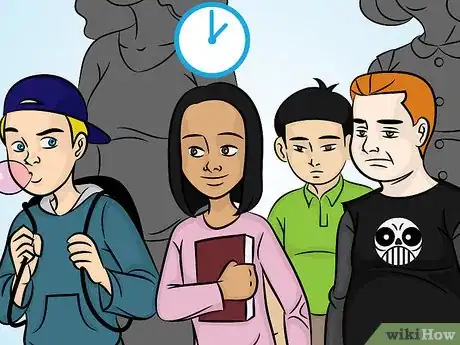
-Step-22.webp)
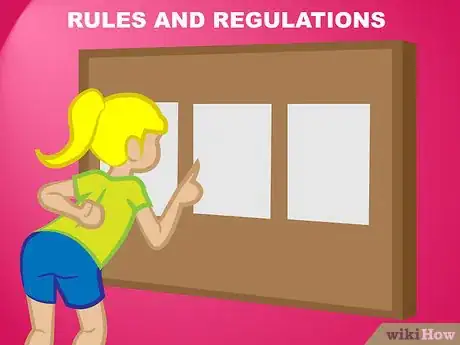
-Step-7.webp)
-Step-20.webp)

-Step-13.webp)
-Step-9.webp)
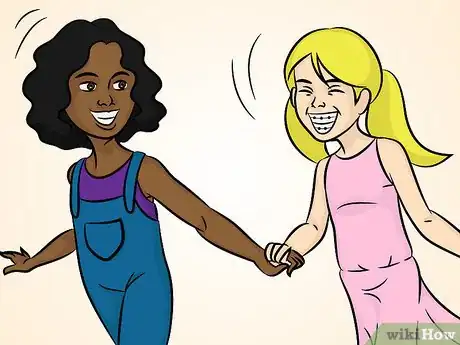
-Step-1.webp)
-Step-2.webp)
-Step-5.webp)
-Step-23.webp)
-Step-24.webp)
-Step-11.webp)
-Step-14-Version-2.webp)






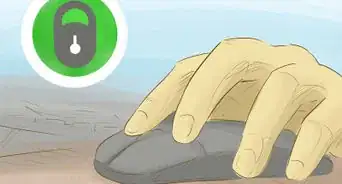



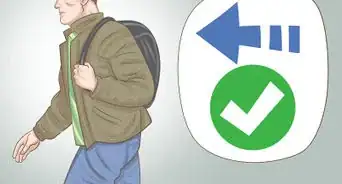
-Step-10.webp)









-Step-14-Version-2.webp)





































